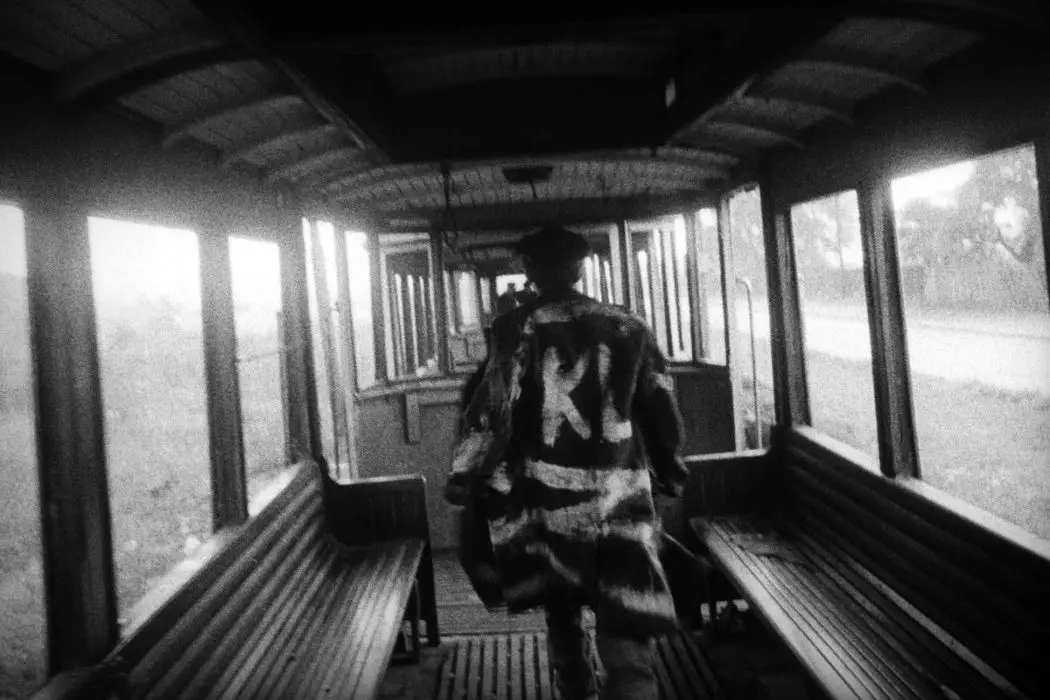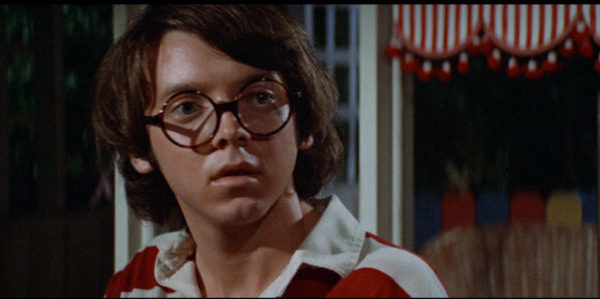Video Dispatches: A STAR IS BORN, DIAMONDS OF THE NIGHT & BREWSTER McCLOUD

Midwesterner, movie lover, cinnamon enthusiast.
Video Dispatches is a regular digest of recent home video releases.
A Star is Born (2018)

The first time Ally and Jackson meet in Bradley Cooper’s debut film, a remake of A Star is Born — particularly an adaptation of the 1976 screenplay from Joan Didion, John Gregory Dunne and Frank Pierson, Ally is singing “La Vie en Rose” at a drag bar. It’s a song about an instant connection and the feel of a rapid, instinctual feeling of love: translated from French, “As soon as I notice him / I feel inside me / My heart beating.” Songwriter Edith Piaf was describing a chemical reaction to a suitor — not why she feels this way, just how she feels. It’s as good as any analog for my relationship with Cooper’s film. As soon as it starts, Jackson Maine rushing out on stage, gin dripping from his lips, it taps into me and we share a wavelength for the next 135 minutes.
I keep expecting the feeling to fade, but watching A Star is Born for the third time, this time at home on the new Warner Bros. Blu-ray, was just as moving. Piaf’s song, again, presents a neat parallel: “He speaks words of love to me / They are everyday words / And they do something to me.” On paper, there’s nothing out of the ordinary about A Star is Born. It’s a film that marks the fourth telling of its particular story; a movie about two successful white people falling in love. And yet, it does something to me.
There are, of course, many obvious things that work, like the music, Lady Gaga and Cooper’s chemistry, Matthew Libatique’s dextrous cinematography, Jay Cassidy’s elliptical editing and a tightly curated supporting cast of Sam Elliott, Dave Chappelle and Andrew Dice Clay. However, for whatever reason, my mind doesn’t go to “Cooper’s direction.”
Perhaps it’s as simple as A Star is Born being his first film, and thus, I’m unfamiliar with what exactly it is that makes the fabric of his orchestration. The 30-minute “making of” featurette included on the disc does well to inadvertently address this, gathering displays, confessions and testimonials about an environment that Cooper cultivated to foster collaboration. Specifically, Libatique speaks to the director’s willful spontaneity and trust in instinct — something directly discernible in the film’s final form.
I’m not sure how this will translate with Cooper’s next project — if A Star is Born was an instance of mystic, circumstantial alchemy — but regardless, he made, without a doubt, the most remarkable, touching major studio U.S. release in years.
Diamonds of the Night (1964)

In his essay included in Second Run’s new Blu-ray release of Jan Němec’s debut Diamonds of the Night, film historian Michael Brooke (who also contributes an audio commentary) includes an epigraph from Němec stating what appeals to him most in films: “the possibility of discovering the secrets of man’s subconsciousness and dreams.”
In isolation, the quote might sound hollow and insubstantial. We’ve had our fill of (male-directed) films that attempt to visually articulate the mental state between dream and reality. What makes Němec’s statement significant and worth reprinting is the subject matter (and point in film history) with which he paired this approach — in Diamonds of the Night, two young men attempt to escape their harrowing fates during Nazi Germany. While the men try to survive in the uncertain woodlands, wounded and starving, Němec melds stark realism with psychological montage, often leaving us, if only momentarily, to suss out the difference.
As a debut, the film is incredibly assured; Němec pares down the plot from his source (Arnost Lustig’s novella Darkness Casts No Shadow), trusting entirely in his ability to communicate the young men’s suffering and desires via visual storytelling.
The Second Run Blu-ray, which is sourced from a new 4K restoration done by the Czech National Film Archive, has my full recommendation. It’s worth noting that later this year, in April, the Criterion Collection are releasing the same title with the same visual source, but with a different set of supplements aside from the overlapping inclusion of Němec’s touching short Sousto, which acts as a nice companion to the main feature. Without having seen Criterion’s exclusive bonus features, I can’t speak to them, but Michael Brooke’s commentary on the Second Run release surely wins it some marks if you’re having difficulty choosing between the two.
Brewster McCloud (1970)

Three months after the March release of MASH, Robert Altman went into production on Brewster McCloud, which was turned around in time for a Christmas weekend release — a schedule quite similar to Clint Eastwood’s in 2018. But where Eastwood followed up his oddity with an over-the-plate, surefire classic, Altman went the other way, throwing a complete gamble — a film he called an “adult fairytale” — on top of his first signature hit.
Last November, a month that saw the HD release of three different Altman films, Warner Archive upgraded their previous Brewster McCloud DVD with a Blu-ray that boasts a lovely image. Watching this release was the second time I watched the film in five months, and while I have a not insignificant admiration for it, even knowing the basic beats this time, I still had trouble getting on its wavelength.
Brewster McCloud is probably closest in DNA to O.C. and Stiggs (1985) in Altman’s catalogue. They’re both dripping with smarm and evident of a director bucking expectations, but this one seems to be the more cherished of the two — perhaps a symptom of the former’s prolonged obscurity. They’re both anarchic in plot, tugged in multiple directions at once, but I can’t help but find more thought and purpose throughout O.C. and Stiggs — a reigned in chaos. What I appreciate most in Brewster McCloud are the little moments of sardonic one-liners and wild spontaneity, like Jennifer Salt’s Hope nervously giggling and orgasming (?) at the sight of Bud Cort doing pull-ups.
The film is noteworthy for being the debut of actor Shelley DuVall, whom Altman discovered while location scouting in Houston. At the recommendation of some crew members who met her at a party, he cast her, eventually saying her raw, untrained performance in Brewster McCloud was magical, subsequently casting her with increasing success in films like Thieves Like Us, 3 Women and, of course, as Olive Oyl in Popeye.
In Altman on Altman, he called Brewster McCloud one of the most original and creative of his catalog. The film, a take on Icarus with murders linked by bird shit and a crazed, bird-morphing professor making occasional monologues, is harder to argue on grounds of creativity than it is on whether its flights of fancy add to something great. Regardless, I’m glad this new Blu-ray exists so I can continue to keep trying to let this one grow on me.
What are your thoughts on any of the films mentioned?
Does content like this matter to you?
Become a Member and support film journalism. Unlock access to all of Film Inquiry`s great articles. Join a community of like-minded readers who are passionate about cinema - get access to our private members Network, give back to independent filmmakers, and more.













